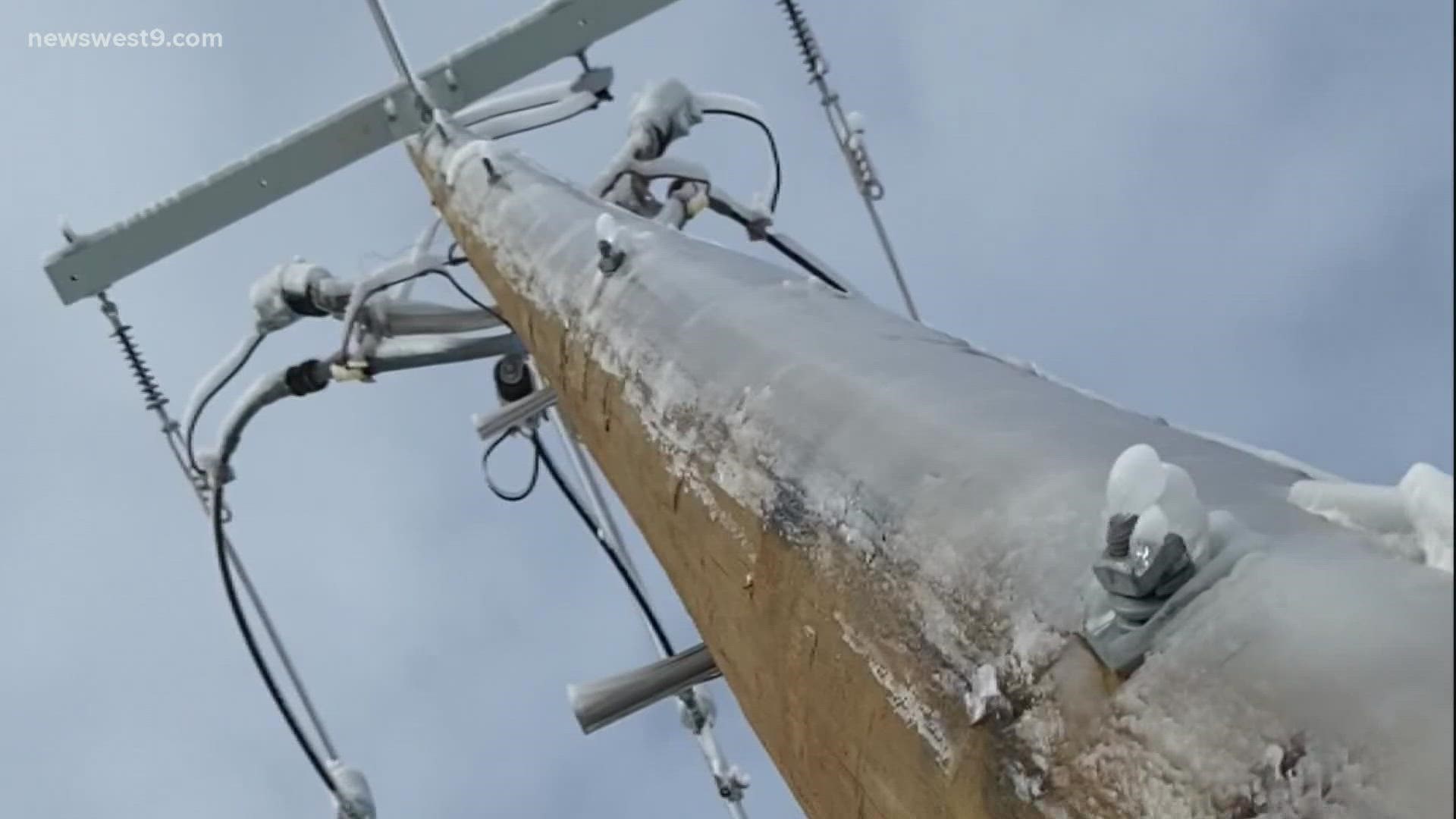ODESSA, Texas — As we gear up for more cold weather, the question on everyone's mind is will the lights and the heat stay on?
It's a question that the Electric Reliability Council of Texas has been asked many times. Interim ERCOT president and CEO, Brad Jones, visited Odessa to discuss what happened last year and why this year will be different.
February 2021 saw a massive winter storm that left many Texans without lights and heat for several days. Ever since that storm, ERCOT has been working hard to make sure that our grid is more prepared this year.
ERCOT has operated the grid more conservatively since the storm and has also levied massive fines against generators that haven't been weatherized. All of this is being done to make the grid more reliable.
"We haven't had a winter like this since 1895, basically a 120 to 130 year storm," Jones said.
Last February was historic, cold and a massive failure on ERCOT's part.
"The first thing is we need to weatherize our generation, and that’s what we’ve done," Jones said. "That has been happening for the last several months, and the generators have invested tens of millions of dollars each to get their generation to a level of weatherization to withstand that type of storm."
This time, ERCOT has been taking a proactive approach to make sure that everyone has heat and that the lights stay on.
"We need to discover whether or not we should plan for an even more difficult winter than the one we saw," Jones said. "We have to decide how far do we take this weatherization? How much money do we wanna spend on it to make sure we’re ready for how cold of a temperature?"
Planning for those types of severe weather events, or even brief cold snaps, has moved to the forefront.
"We begin our communications quite early, and even for this storm coming up, which is nowhere near 2021 and nowhere near 2011, we began our communications with market a few days ago to make sure they were getting prepared, that they knew what was coming," Jones said.
Jones said that just about all generation units and transmission facilities passed a recent inspection and are ready for the winter.
"I feel very good about the work that has been done there, and our distribution companies have also gotten ready," Jones said. "They’ve also made sure that their systems are ready in case there’s ever a need for another load shed event, that they’re prepared to handle that."

